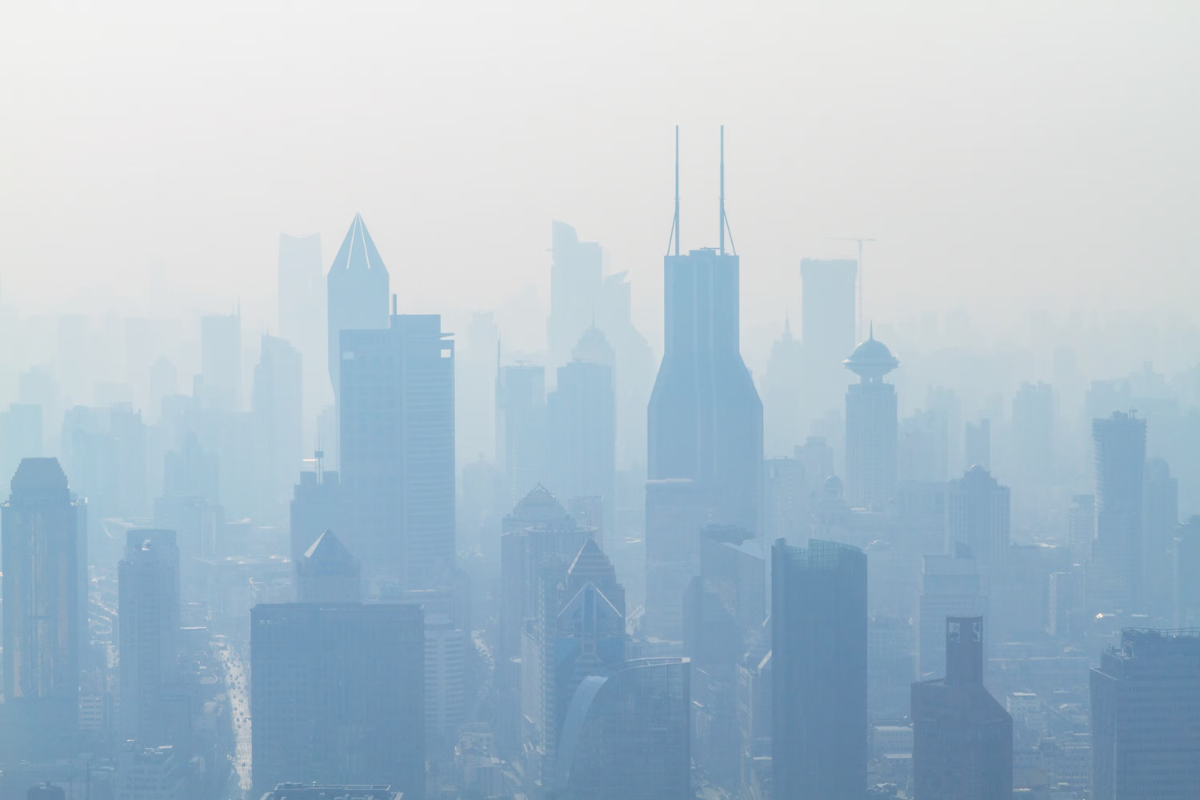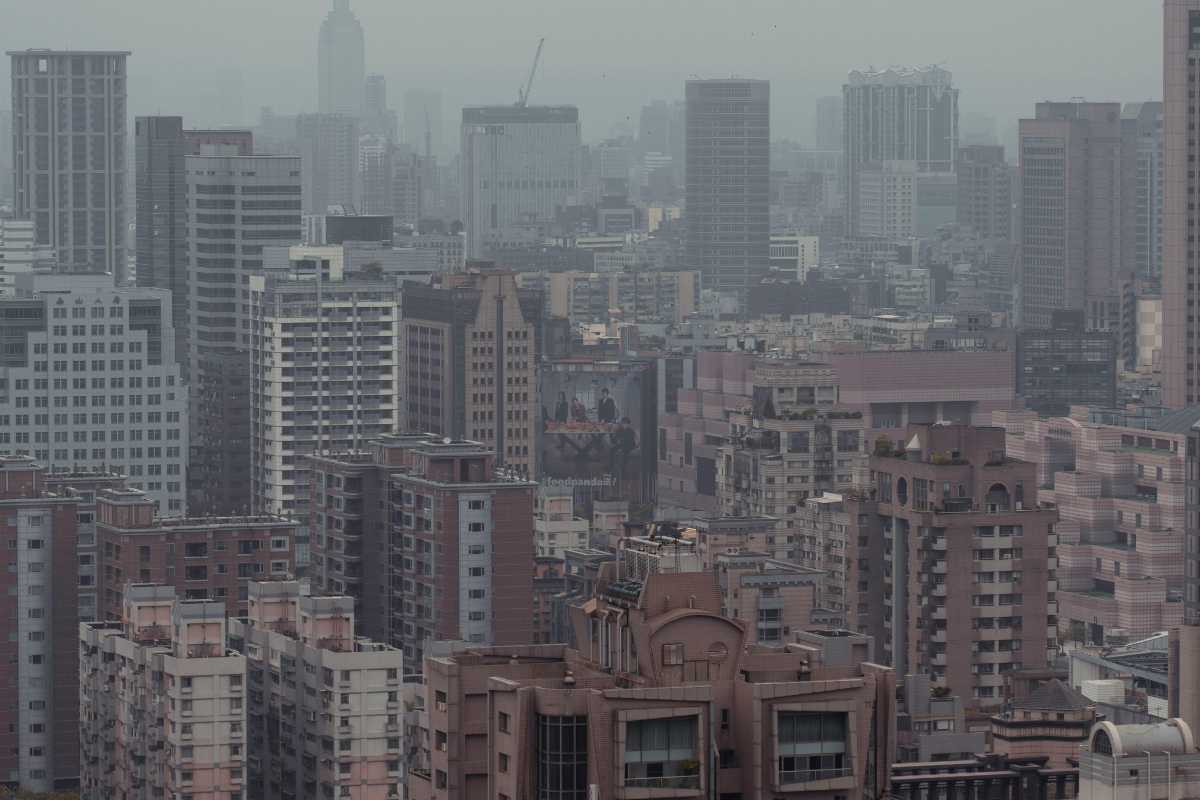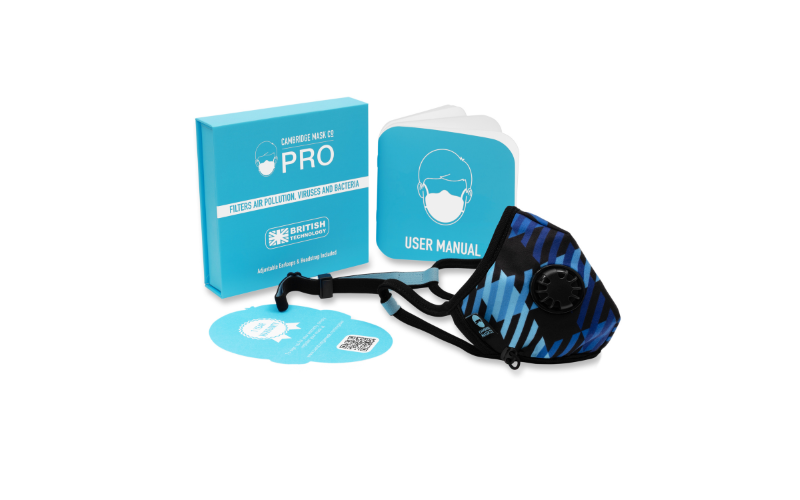
How to Choose the Right Mask for Urban Pollution
Urban living comes with its unique set of challenges, and one of the most pressing issues is air pollution. Smog, a common urban pollutant, poses significant health risks, particularly to our respiratory system. In this blog, we’ll explore what causes smog in urban areas, its impact on our health, and how to choose the right face mask to protect yourself. Whether you're commuting to work or taking a stroll in the city, finding the right face covering is essential for your well-being.
What Causes Smog in Urban Areas?

Smog is a type of air pollution that consists of a mixture of smoke, sulfur dioxide, and other particulate matter. In urban areas, smog is primarily caused by:
- Vehicle Emissions: Cars, trucks, and buses release large amounts of pollutants, including nitrogen oxides (NOx) and volatile organic compounds (VOCs). These pollutants react in the presence of sunlight to form ground-level ozone, a major component of smog. The high density of vehicles in cities exacerbates this problem, making traffic a significant contributor to urban smog.
- Industrial Activities: Factories and power plants emit significant amounts of pollutants, including sulfur dioxide (SO2) and particulate matter (PM). These industries often cluster in or near urban areas, contributing to the local pollution burden. The burning of fossil fuels for energy and manufacturing processes releases large quantities of pollutants into the air.
- Construction and Demolition: Dust and particulate matter from construction sites can exacerbate smog levels. The frequent construction activities in urban areas release dust and other fine particles into the air, adding to the pollution load.
- Natural Factors: Weather conditions such as temperature inversions can trap pollutants close to the ground, increasing smog levels. Temperature inversions occur when a layer of warm air traps pollutants in the cooler air below, preventing them from dispersing and leading to higher concentrations of smog.
The Impact of Inhaling Smog on the Respiratory System
Inhaling smog can have severe consequences for the respiratory system. Here’s how it affects your health:

- Irritation of the Airways: Smog can irritate the respiratory tract, causing coughing, throat irritation, and shortness of breath. The fine particles and chemicals in smog can penetrate deep into the lungs, causing inflammation and irritation.
- Exacerbation of Asthma: People with asthma may experience more frequent and severe attacks due to smog exposure. The pollutants in smog can trigger asthma symptoms and make it harder to manage the condition.
- Chronic Respiratory Diseases: Long-term exposure to smog can lead to chronic bronchitis and other respiratory conditions. Prolonged exposure to high levels of pollution can cause lasting damage to the lungs and airways, leading to chronic respiratory diseases.
- Reduced Lung Function: Continuous inhalation of smog can reduce lung function and increase the risk of lung infections. Over time, the damage caused by pollutants can impair the lungs' ability to function properly, making it harder to breathe and increasing the risk of respiratory infections.
- Cardiovascular Effects: In addition to respiratory issues, exposure to smog can also affect the cardiovascular system, increasing the risk of heart attacks and strokes. The pollutants in smog can enter the bloodstream, causing inflammation and damage to blood vessels.
How to Protect Your Respiratory System from Smog
Protecting your respiratory system from smog involves a combination of lifestyle changes and protective measures:
- Monitor Air Quality: Keep track of the Air Quality Index (AQI) in your area. Avoid outdoor activities when the AQI indicates unhealthy levels. You can use apps and websites that provide real-time air quality updates to stay informed about the pollution levels in your area.
- Stay Indoors: On days with high smog levels, stay indoors as much as possible and use air purifiers to improve indoor air quality. Ensure that your home is well-sealed to prevent outdoor air from entering and consider using air purifiers with HEPA filters to remove pollutants from the indoor air.
- Use a Face Mask: Wearing a high-quality face mask can significantly reduce your exposure to harmful pollutants. A good face mask can filter out a large percentage of the particulate matter and chemicals in smog, protecting your lungs from damage.
- Avoid Peak Traffic Hours: Try to minimize your exposure to vehicle emissions by avoiding peak traffic hours. If possible, use alternative routes with less traffic or opt for public transportation to reduce your exposure to pollutants.
- Create Green Spaces: If you have control over your environment, plant trees and shrubs around your home. Vegetation can help absorb pollutants and improve air quality in your immediate surroundings.
How Cambridge Mask Can Protect You from Smog
Cambridge Masks are designed with advanced filtration technology to provide superior protection against urban air pollution. Here’s how they help:
- Three-Layer Filtration System: Cambridge Masks feature a three-layer filtration system, including a military-grade carbon filter that captures particulate matter, gases, and bacteria. The outer layer blocks larger particles, the middle layer filters out harmful substances, and the inner layer provides a comfortable fit. Learn more about our filter technology.
- High Filtration Efficiency: These masks can filter out nearly 99% of harmful pollutants, including PM2.5, NOx, and SO2. The high filtration efficiency ensures that you are protected from the majority of harmful particles in the air. Explore the features of the Pro Face Mask - The Halifax.
- Comfortable Fit: Designed for comfort, Cambridge Masks offer an adjustable fit that ensures a secure seal, preventing pollutants from leaking in. The masks are available in various sizes and have adjustable straps to fit different face shapes and sizes.
- Durability: Made from high-quality materials, Cambridge Masks are durable and can be used multiple times, making them a cost-effective choice. The masks are also washable, allowing you to keep them clean and maintain their effectiveness over time.
- Stylish Designs: In addition to their protective features, Cambridge Masks come in a variety of stylish designs, allowing you to protect yourself without compromising on style.

What to Look for in a Mask for Urban Pollution
When choosing a face mask for urban pollution, consider the following factors:
- Filtration Efficiency: Look for masks that offer high filtration efficiency, preferably those that can filter out at least 95% of particulate matter. Masks with N95, N99, or similar ratings are ideal for providing adequate protection.
- Fit and Comfort: Ensure the mask fits well and is comfortable to wear for extended periods. A good fit prevents pollutants from bypassing the filter and ensures that the mask stays in place during use.
- Breathability: Choose a mask that allows you to breathe easily without compromising on protection. Masks with good breathability are more comfortable to wear and are less likely to cause discomfort or difficulty breathing.
- Durability and Maintenance: Opt for masks that are durable and easy to clean or replace. Reusable masks should be washable, and filters should be replaceable to maintain effectiveness.
- Certification: Check for certifications from reputable organizations to ensure the mask meets safety standards. Look for masks that have been tested and certified by organizations such as the National Institute for Occupational Safety and Health (NIOSH) or equivalent bodies.
- Style and Design: Consider masks that offer a range of styles and designs to suit your personal preferences. Wearing a mask that you find stylish can make it more likely that you will wear it consistently.
Conclusion
Living in an urban area doesn’t mean you have to compromise your health. By understanding the causes of smog, its impact on your respiratory system, and how to protect yourself with the right face mask, you can significantly reduce your exposure to harmful pollutants. Cambridge Masks offer a reliable solution with advanced filtration technology, ensuring you breathe cleaner air even in the most polluted environments. When choosing a face covering, prioritize filtration efficiency, fit, comfort, breathability, durability, and certification to find the best protection against urban pollution.
Stay informed, stay protected, and breathe easy with the right face mask!


